Is Canada doing enough to protect the environment? Read RCI’s recent reports on environmental protection, climate change and decisions of the Canadian political and justice systems on these issues.
Extinction rebellion action in Canada: measured success
By

Protesters with Extinction Rebellion occupied a bridge in and out of downtown Vancouver on October 7, 2019. Several bridges were closed across Canada. (Darryl Dyck/The Canadian Press)
On October 7, 2019, Extinction Rebellion activists blocked several bridges in Canada and succeeded in drawing attention to their message that climate change is an emergency already underway. The movement’s name refers to the belief that the world has entered the sixth global mass extinction event. It’s symbol is an… More
Hundreds of thousands of Canadians march in Global Climate Strike
By

A aerial view of the Montreal climate march on Sept. 27, 2019. (CBC)
Hundreds of thousands of people are expected to march across Canada on Friday in support of the Global Climate Strike movement, demanding action against climate change. More than 80 cities across the country are taking part in the protest, but… More
Climate Action Summit: What was said
By

Swedish climate activist Greta Thunberg, 16. blasts world leaders at the climate summit for their collective inaction. (via CBC)
Yesterday, world leaders gathered at the U.N. General Assembly’s Climate Action Summit in New York. It was begun with a blistering rebuke by young activist Greta Thunberg. The Secretary-General then said it was time to hear concrete actions, not vague promises. For more on was discussed, and… More
Twin science projects seek to understand impacts of Arctic climate change
By
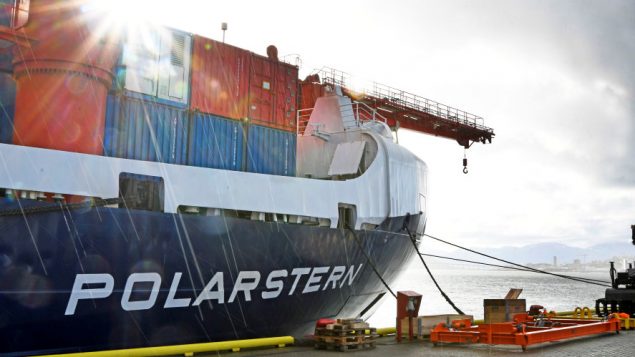
The German icebreaker and research vessel Polarstern is pictured at the port of Tromso, Norway Sept. 18, 2019. (Rune Stoltz Bertinussen/NTB scanpix/Reuters)
Two major international science projects involving hundreds of scientists from around the world are underway in the Arctic seeking to understand the dramatic changes happening in “the epicenter of climate change” and their effect on the rest of the planet. The first mega-project involves an international team of… More
Canadian architects commit to fighting climate change with new declaration
By

Canadian architects create a new declaration to commit to fighting the climate crisis (Photo: Sergey Zolkin / Unsplash)
As students take to the streets around the world to demand action on climate change, Canadian architects are also engaged in the fight against this global issue. Today, the Royal Architectural Institute of Canada’s (RAIC) Committee on Regenerative Environments is calling on Canadian architectural and design firms to commit to… More
Study to be done on establishment of a protected marine area in Atlantic Canada
By

Part of the region in the province of Newfoundland and Labrador under study to become an an Indigenous protected marine area under the Canada National Marine Conservation Areas Act. (Parks Canada)
A coastal area adjacent to the Torngat Mountains National Park in northern Labrador in Atlantic Canada is under consideration to become an Indigenous marine protected area. Canada’s environment minister Catherine McKenna and Johannes Lampe, the president of Nunatsiavut, the Inuit region of northern Labrador in… More
Study outlines plan to develop clean hydrogen supply network in B.C.
By
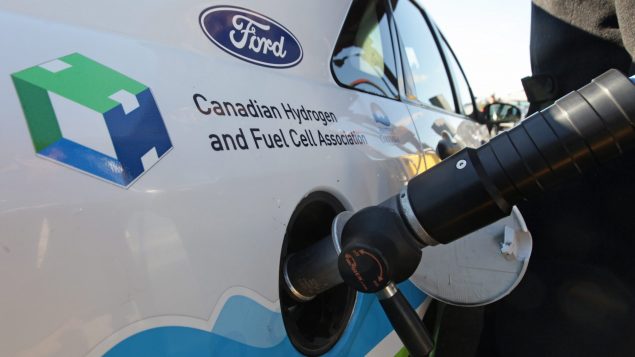
Hydrogen cars could one day replace gasoline vehicles. (Photo: Darryl Dyck/THE CANADIAN PRESS)
For many, hydrogen cars are the future. But how far are we from seeing them on Canadian roads? This is a question that researchers at the University of British Columbia have begun to answer by developing a hydrogen supply chain model that can lead to the adoption of zero… More
Building for change in the face of climate change
By
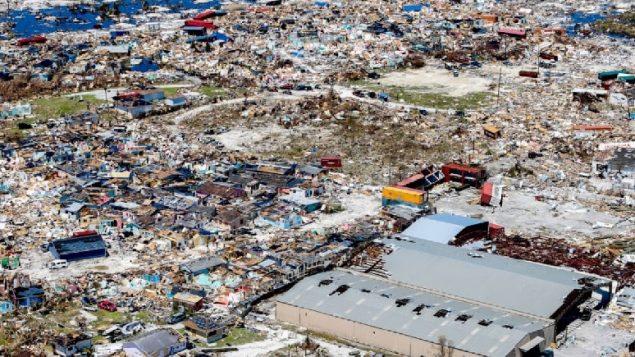
The damage to Abaco Island in the northern Bahamas. This photo of Marsh Harbour on Great Abaco Island was taken on Sept. 5. (Jose Jimenez/Getty Images)
It was among the most violent storms recorded. Hurricane Dorian slowly smashed its way across the Bahamas and later to the U.S east coast and Canada’s maritime provinces. The incredible winds and massive rain and storm surges, caused total and deadly… More
New Indigenous protected area created in the Northwest Territories
By
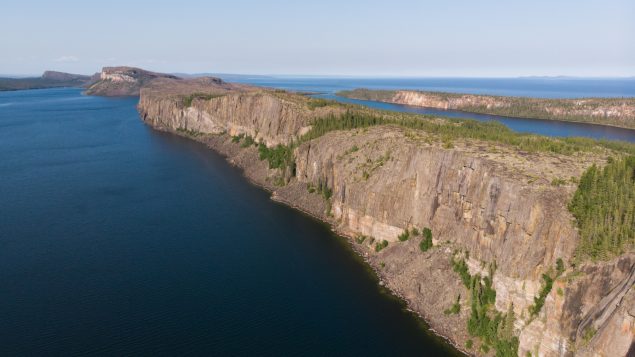
Cliffs of the Pethei Peninsula overlooking Tu Nedhe (Great Slave Lake) in Thaidene Nëné, which protects 6.5 million acres of the ancestral homelands of the Łutsël K’e Dene First Nation and will be co-governed by the Nation, federal and territorial governments. (Photo © Pat Kane)
A remote Indigenous community in Canada’s Northwest Territories is celebrating today the creation of a new Indigenous protected area that will safeguard an area of pristine wilderness larger than all of Israel or Belize from any industrial development or mining. After decades of on-and-off discussions… More
From dumpster to diesel: How a pilot project in Whitby is turning plastic waste into fuel
By
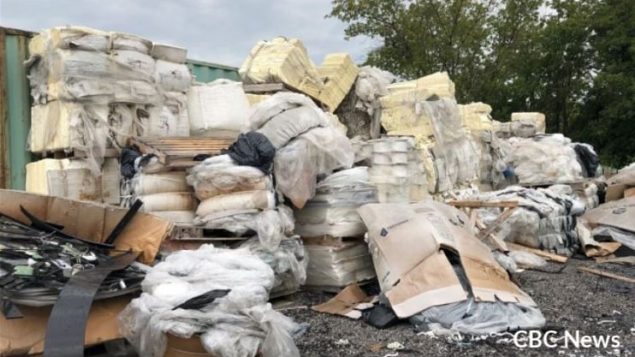
A pilot project in Whitby, Ont., turns non-recyclable plastics into usable fuel, rather than having the waste sit in a landfill. (Talia Ricci/CBC)
A pilot project in Whitby, Ont., is using technology to give plastic waste a second life by turning it into diesel fuel and gasoline.The technology, dubbed the Phoenix, can convert single-use items like plastic bags and Styrofoam — items that would otherwise end up in landfill… More
Inuit and Ottawa announce new High Arctic marine conservation area, finalize another one
By

The Coast Guard icebreaker Terry Fox sits in the waters of Lancaster Sound, Nunavut at the eastern gates of the Northwest Passage in August 2006. (Bob Weber/THE CANADIAN PRESS)
The federal government and the Inuit announced Thursday the first step in the creation of a new marine protected area in the northernmost part of Nunavut in the High Canadian Arctic. The proposed Tuvaijuittuq Marine Protected Area is located off northern Ellesmere Island, covering nearly 320,000 square kilometres of… more
2017 was 2nd-warmest across the globe since 1880, NASA says
By
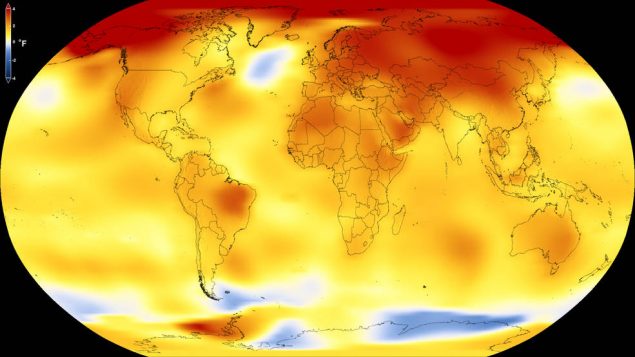
NASA’s Scientific Visualization Studio
Last year, was the second warmest since scientists began keeping reliable record in 1880, according to a study by NASA. Earth’s globally averaged surface temperatures in 2017 were 0.90 C warmer than the 1951 to 1980 mean, according to scientists at NASA’s Goddard Institute for Space Studies (GISS) in New York… more
Global warming vs the Winter Olympics
By

Photo Credit: Alessandro Trovati/Associated Press
The Winter Olympics are to celebrate the thrill of winter sports, but it seems winter is being less and less cooperative. With the Pyeongchang Olympics in South Korea, just weeks away, a new study shows increasingly fewer cities will be able to reliable host the winter Games… more
Environmental group praises Canada’s new Arctic shipping rules
By
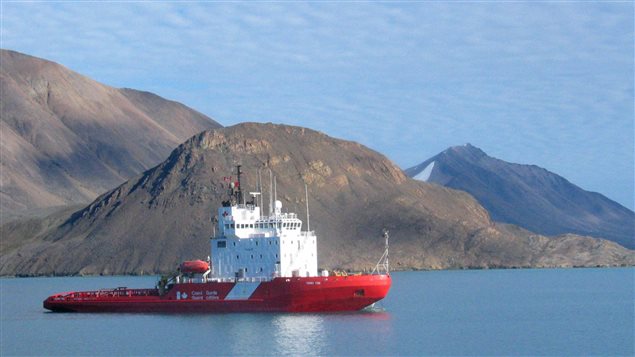
© PC/BOB WEBER
Ocean conservancy advocates are welcoming the new safety and pollution prevention regulations for ships plying Canada’s Arctic waters unveiled by the federal government earlier this week but are also urging Ottawa to expand its regulations to include the eventual phase-out of heavy fuel oil and address underwater noise pollution… more
Ottawa drops vessel speed limit requirement meant to protect endangered right whales
By
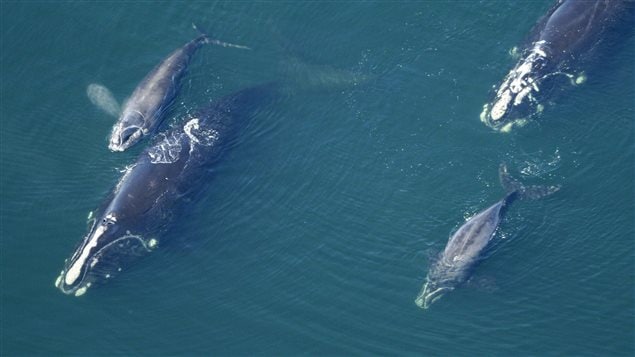
© AP Photo/New England Aquarium
The federal government has lifted the mandatory speed limit for large vessels going through the Gulf of St. Lawrence, saying there have been no recent sightings of the endangered North Atlantic right whales the slowdown in marine traffic was intended to protect. Transport Minister Marc Garneau also argued the measure was needed to “ensure ships can maintain manoeuverability in winter conditions and for the safety of those operating in Canadian waters”… more
Salt used on icy roads and parking lots kills wildlife: WWF-Canada
By
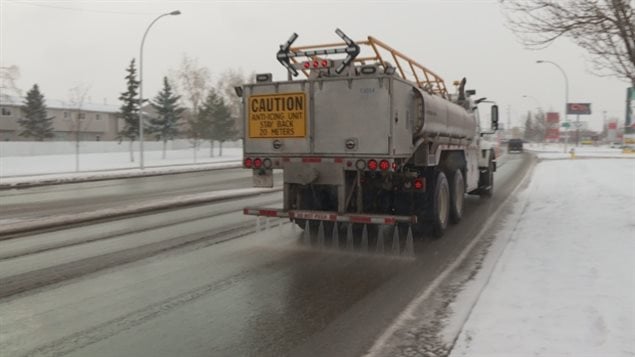
Photo Credit: Zoe Todd/CBC
World Wildlife Fund Canada says road salt is having a devastating impact on the freshwater ecosystems of the Great Lakes at the heart of North America. When roads and highways get slippery from ice and snow, salt is often spread to melt it. The most-often form used, sodium chloride, dissolves easily in water, flows into sewers and ends up in creeks, wetlands, rivers and lakes… more
Ozone hole: international cooperation works
By
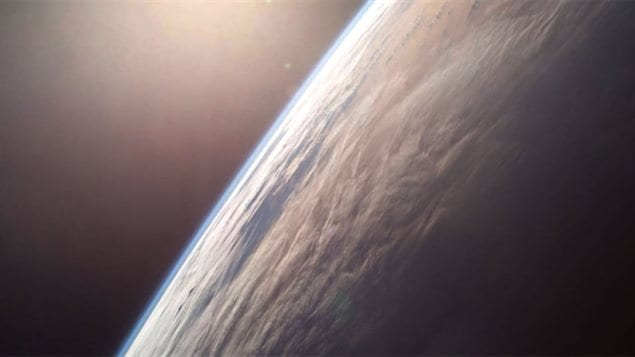
Decades ago scientists sounded the alarm that a large hole in the Earth’s ozone layer had formed over Antarctica. The ozone layer protects the Earth, and our skin and eyes, by absorbing much of the sun’s harmful ultraviolet radiation. NASA research now says it’s clear that an international accord to protect the ozone layer, is working. The reduction in the peak size of the hole was discovered in September last year, but only now has been clearly linked to the results of an international effort to deal with the concern… more
Arctic Ocean composition is undergoing rapid change: study
By
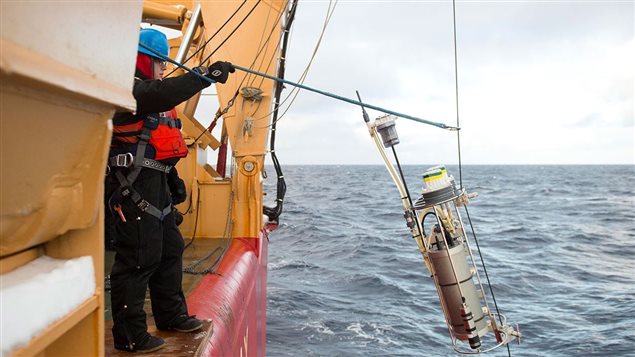
© (Cory Mendenhall / U.S. Coast Guard)
U.S. scientists have found have found new evidence of significant changes in the chemical and biological composition of the Arctic Ocean that could fundamentally transform the local food chain. A new study published this week in the journal Science Advances suggests that climate change has caused a dramatic increase in the amount of soils or sediments flowing from the Arctic shore and the shallow continental shelf into the ocean over the last decade… more
Dolphins delight ferry passengers
By
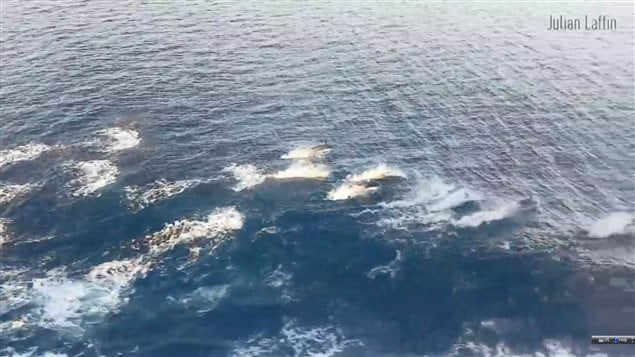
Photo Credit: Julian Laffin/CBC
There are many ferries that operate on Canada’s Pacific coast and in addition to seeing the fabulous scenery there, some passengers got to see several white-sided dolphins frolicking in their ship’s wake on New Year’s Day. CBC reports the ferry was travelling from Nanaimo on Vancouver Island to Horseshoe Bay which is on the coast of the province of British Columbia. That area is dotted with islands covered in lush forests. Passenger Julian Laffin saw the dolphins and took a video… more
Global warming, drier world
By
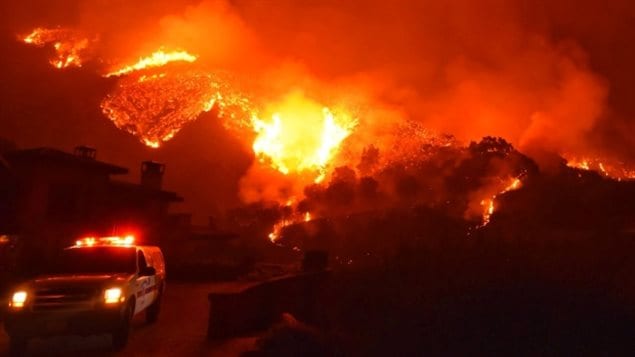
Photo Credit: Courtesy Mike Eliason/Santa Barbara County Fire Department via Reuters
The news stories of severe and unusual drought and of massive wildfires around the world have been increasing in recent years. Canada, Australia, Greece, South Africa, the U.S southwest and California, and Chile are among countries and regions affected by massive unprecedented wildfires made much worse by unusual droughts and extended heatwaves… more
Canadian animal activists optimistic about the future of their cause
By

Photo Credit: Courtesy: Animal Justice
Say one thing for the people in Canada’s animal rights movement–there’s no quit in any of them. And they are scoring some hard-earned victories. For one of the first years ever, there were no elephants in circuses in Canada and the province of Prince Edward Island banned circuses with wild animals and cancelled a pig scramble event after activists complained to authorities that chasing terrified baby pigs around a ring is illegal… more
Fish in the Rideau being tested for contaminants
By
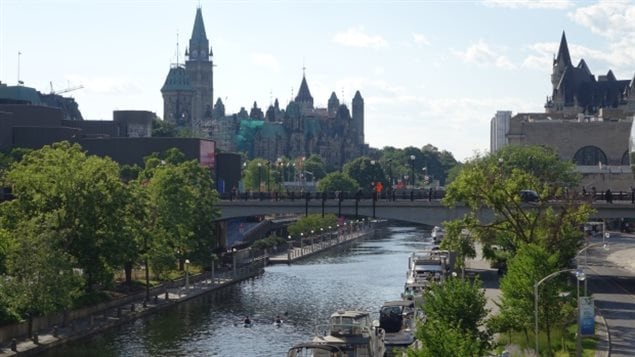
Shortly after portions of the World Heritage Site Rideau Canal were added to the federal contaminated sites list, comes word that fish are now being tested. Portions of the canal recently tested showed a variety of toxic materials in the sediment of sections of the Canal, notably in downtown Ottawa… more
Caribou decline, habitat still shrinking
By
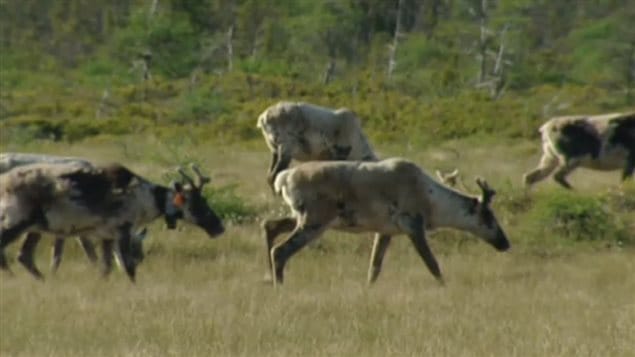
Caribou populations continue to decline and disturbances in their habitat are still increasing in spite of a recovery strategy put in place by the Canadian government in 2012. The government has released a progress report on implementation of the strategy and it shows that none of the provinces have met the goals it set... more
The plastic wrapping that can kill
By
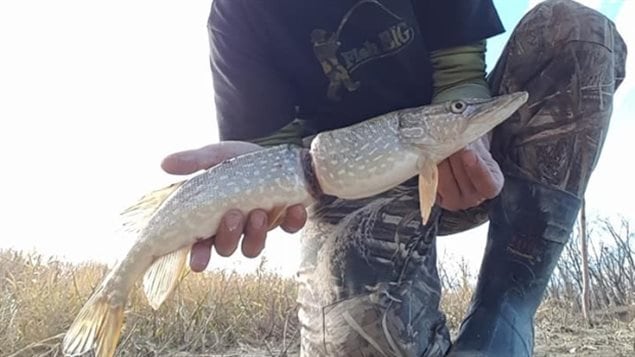
Once again, the issue and harm of plastic garbage in waterways has been highlighted. A fisherman in the western province of Alberta caught a northern pike, and got a shock when he pulled the fish out of the South Saskatchewan River... more
Climate change, habitat loss, hard on migratory birds
By
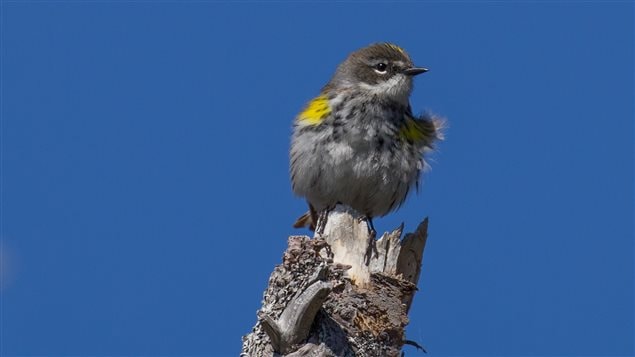
Changes to the climate and habitat are occurring so rapidly that it is difficult for some bird species to adapt and, if they cannot adapt or conditions do not improve, they could face extinction. Migratory birds in eastern Canada face many challenges and, this year, they included several hurricanes… more
How warming climate will change a unique forest type
By
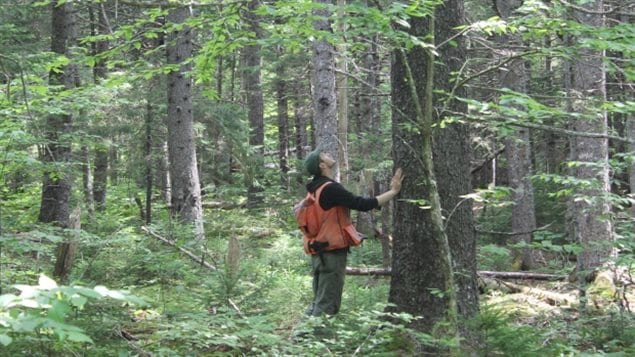
Canada’s eastern maritime provinces, notably New Brunswick, Nova Scotia, Prince-Edward Island, and into Quebec’s Gaspe peninsula, are home to a unique forest type. It’s called the “Acadian forest”, and it is one of eight forest types in Canada. Throughout this region the climate enables a mix of Northern Hardwood and Boreal forest. This means a tree mix of 32 native species of hardwoods and softwoods unique in the world... more
Pollution causing one in six of all deaths: report
By
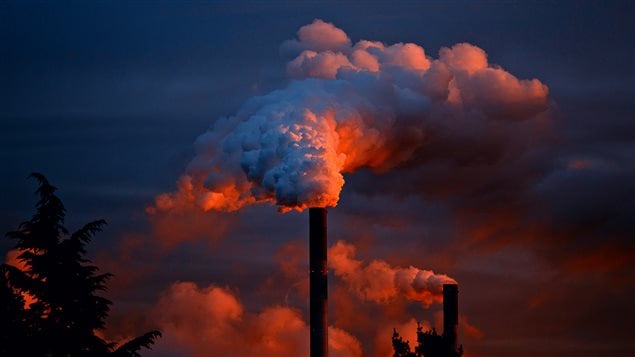
Pollution is linked to an estimated nine million premature deaths each year, according to a report from the Lancet Commission on Pollution and Health. Health and environmental authors used data from the Global Burden of Disease study to produce the report... more
Grizzly bears in B.C.: the threat is not from hunters
By

Recently the government in the west coast province of British Columbia banned trophy hunting of the majestic grizzly bear. It said at the time that the bear population was stable and that although trophy hunting was not really a threat, trophy hunting of the bears had simply become socially unacceptable… more
Canada’s fisheries are in trouble, says non-profit
By
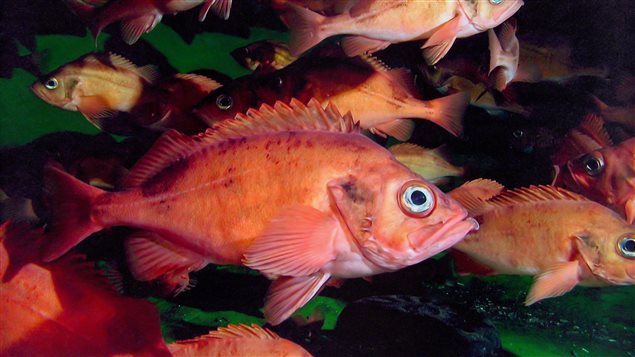
It’s estimated that since 1970, Canada has lost more than half its amount of fish, according to a reviewcompleted by the conservation group Oceana Canada. It says that only one third of the fish stocks are healthy, 13 per cent are in critical condition and there is not enough information to assess the health of the remaining 36 per cent… more
Inuit traditional knowledge to guide marine management plan off Labrador coast
By
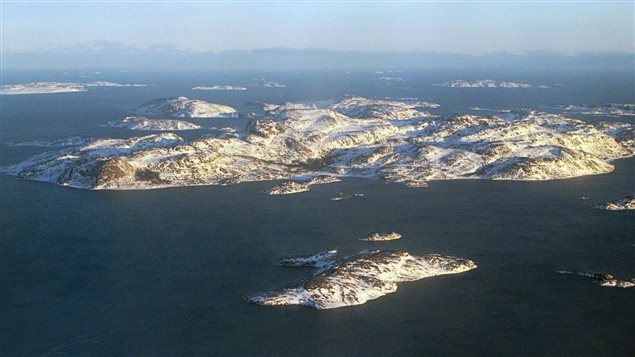
The Inuit in northern Labrador and the federal government signed a deal Thursday evening that will see the Inuit use their traditional knowledge to develop Canada’s first Indigenous protected marine area off the coast of Labrador at the eastern approaches to the Northwest Passage… more
Climate change: good news and bad news
By
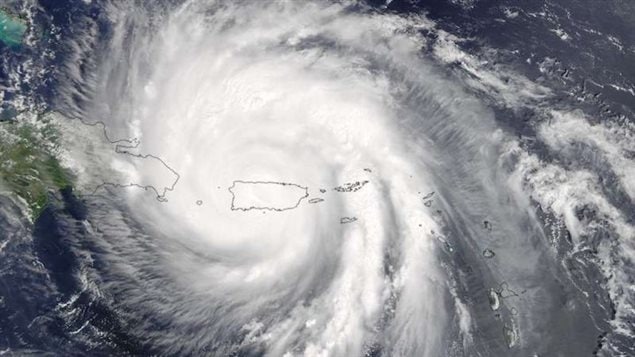
Climate change, or the seeming effects of climate change, appeared to many of us on TV and digital screens around the world in September. Following one of the worst wildfire seasons in British Columbia’s history, on the Pacific Coast of Canada, we were anticipating and then observing the harrowing images of the damage wrought by hurricanes of unprecedented size and frequency… more
Aboriginal rights vs conservation: Lake Nipissing
By
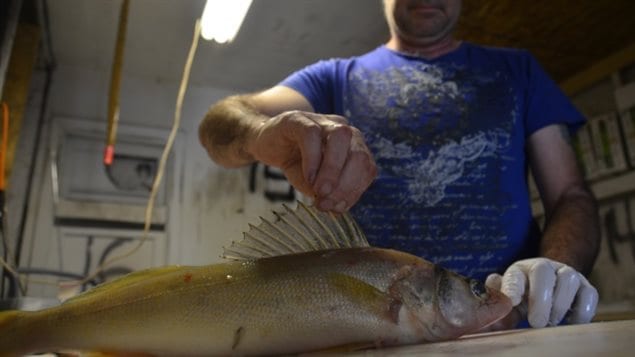
It seems it’s an ongoing but increasingly contentious issue in Canada, native rights versus laws on conservation of species and resources. This is especially so in relation to fishing... more
Inuit say ‘nyet’ to toxic splash from Russian rockets
By

Inuit in Canada and Greenland are calling on Ottawa and Copenhagen to demand the postponement of a Russian rocket launch scheduled to deliver a European Space Agency satellite to orbit next week and look for alternative launch vehicles that use non-toxic propellants for any future launches… more
Energy East pipeline ends in victory and sorrow
By
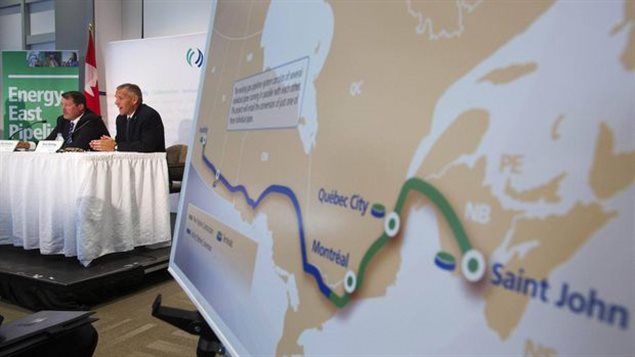
Energy East was the proposed 4400 kilometre pipeline that was the bringer of prosperity to some parts of Canada, and a potential disaster to other regions. When Trans Canada, the company behind the project, announced on Thursday October 5th, that it was cancelling the pipeline plan, the reactions across Canada were strong and contrasted… more
Efforts to ban heavy fuel oil in the Arctic gather steam
By
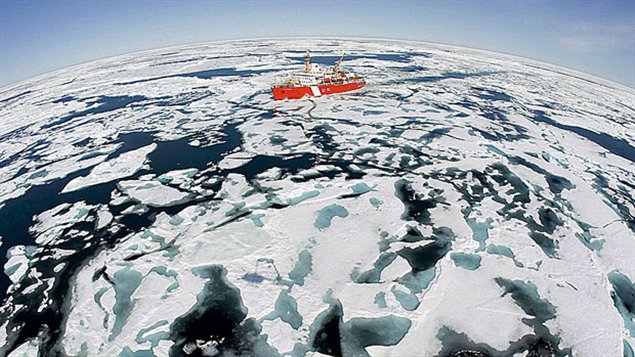
The international campaign to end the use of heavy fuel oil (HFO) by ships plying the waters of the increasingly accessible Arctic is gathering steam ahead of an important meeting of the world maritime body next year… more
Scientists urge international agreement on fisheries in Central Arctic Ocean
By
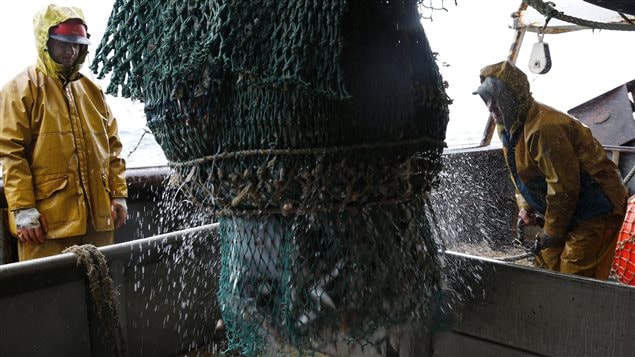
A group of high-profile scientists specializing in Arctic research is urging the five Arctic coastal states and the five major distant-fishing players to finalize discussions on signing an international agreement on regulating any future fishery in the Central Arctic Ocean… more
New Canadian study suggests that trees can play a part in a longer life
By
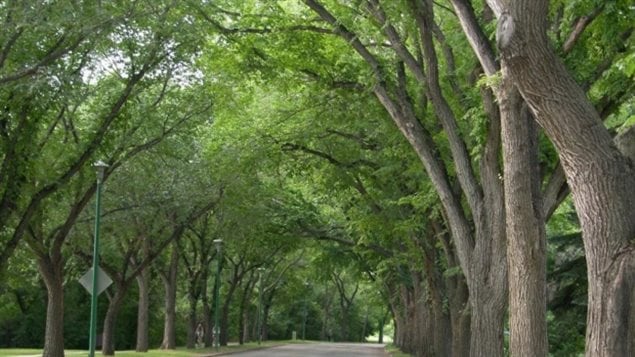
.There are a million reasons to love trees, those perennial plants that rise from the ground, come in all shapes and sizes, whose branches grasp at the sky. Researchers at the University of New Brunswick have unearthed compelling evidence that trees help us live longer and they have some sturdy data to support that premise... more
Senate votes to move ahead with bill dear to animal activists
By

Canadian animal rights activists scored what they are calling a “huge victory” in the Senate on Thursday. The upper chamber’s fisheries committee voted to move forward with Bill S-203, legislation that would ban keeping whales and dolphins in Canadian aquariums… more
Climate Week NYC
By
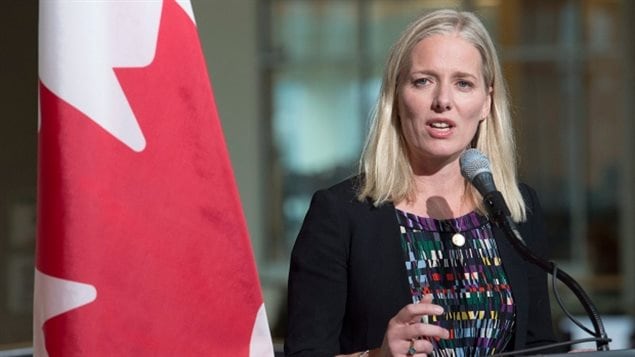
A gathering involving a substantial and varied group of interested parties, including some Canadian politicians and stakeholders, is meeting all this week in New York City. The week long series of events coincides with the major political gathering at the U.N.’s General Assembly… more
Concerns over changes to Canada’s offshore drilling policy
By
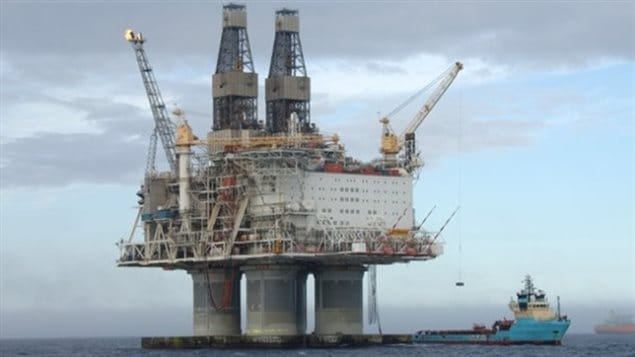
Several environmental agencies have expressed concerns over relatively quiet changes being proposed for offshore drilling. They say notice for public consultation has been barely advertised, that affected first nations tribes have not been consulted at all, and that most input into regulation for the petroleum industry over the past year has come from the industry itself… more
Canada to co-host meeting on climate change action with China and EU
By
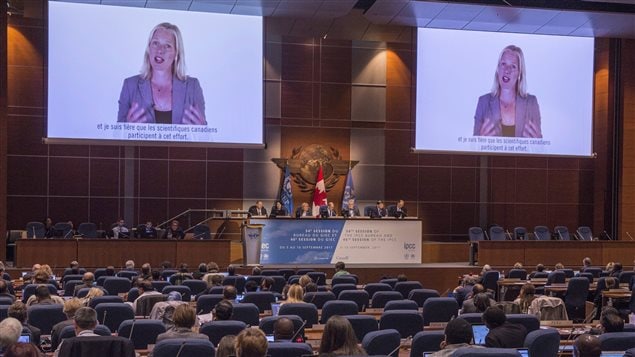
Environmental ministers representing Canada, China and the European Union, as well as representatives from some 30 countries will gather in Montreal later this week to move forward with the implementation of the Paris climate change agreement, according to Canada’s Minister of Environment and Climate Change Catherine McKenna... more
LNG projects would make climate targets virtually unattainable: report
By

The province of British Columbia has approved two liquefied natural gas (LNG) projects but the Pembina Institute found that if they go ahead, they would emit enough carbon pollution to make it virtually impossible to meet 2050 climate change targets. The province has committed to reducing carbon emissions to below 2007 levels by 2050. The energy think-tank has issued a report on the implications of the development of LNG projects.… more
Scouts plant trees after Fort McMurray wildfires
By

The Scouts Canada youth organization is going to plant 750 trees in the western city of Fort McMurray to replace some of those devastated in last year’s wildfires. The raging fire tore through about 590,000 hectares and upwards of 88,000 people were forced to evacuate the area… more
Supreme Court landmark decisions on development-indigenous rights
By
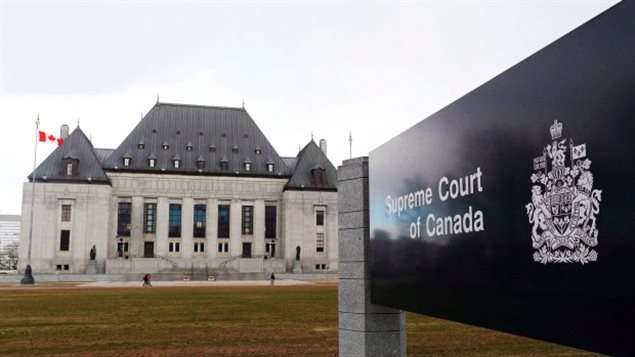
It’s been a three-year battle for the mostly Inuit communities of Baffin Island, but today they’ve won their battle at the highest court in the land The Supreme Court of Canada has cancelled plans for seismic oil and gas exploration off the coast of Baffin Island, which residents say could potentially harm marine life and their reliance on the fish and animals for sustenance and traditional way of life… more
Canada lags in protecting nature: report
By
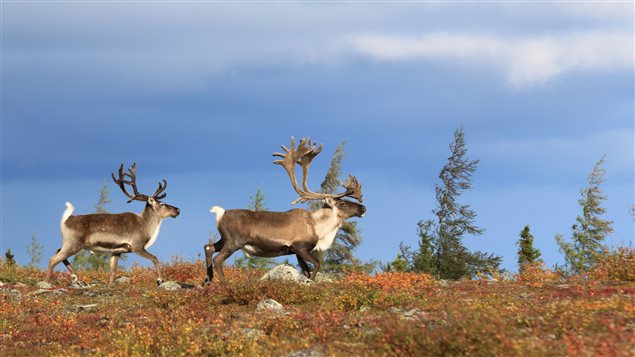
Canada ranks last among G7 countries when it comes to protecting land and fresh water, according to a report from the non-profit Canadian Parks and Wilderness Society (CPAWS). Only 10.6 per cent of its massive landscape is protected and that is well behind the global average of 15 per cent. It also trails other large countries like China, Brazil and Australia… more
Giant liquid natural gas pipeline and terminal stalled by legal challenge
By
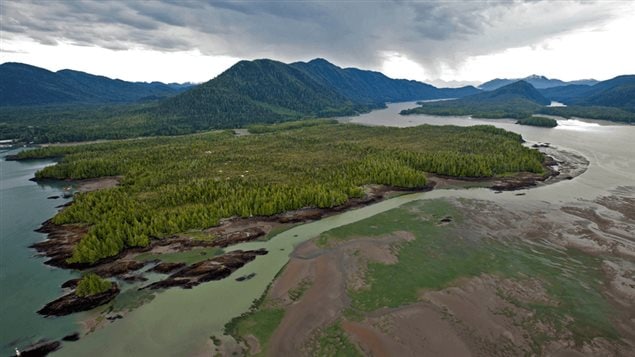
A huge project set to develop a 900 kilometre gas transmission line and export port on the British Columbia coast has hit a legal roadblock. The provincial government had approved the Prince Rupert Gas Transmission Line which would move fracked gas from north-eastern BC to the proposed giant LNG export terminal on Lelu Island near Prince Rupert… more
Putting a dollar value on wetlands
By
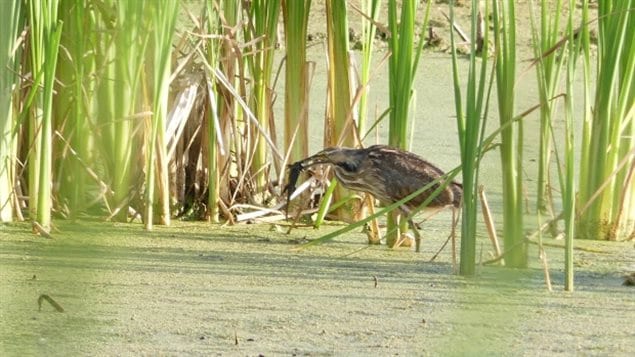
Scientists and environmentalists have long known that wetlands (marshes, bogs) mitigate climate extremes. They absorb water when there’s excess rain, and retain and release water when there’s drought. Wetlands are something like a weather “shock absorber”. Knowing that however hasn’t helped in their preservation from development. A new study seeks to change attitudes towards wetlands, and help in their preservation… more
Science minister goes North to observe climate change
By
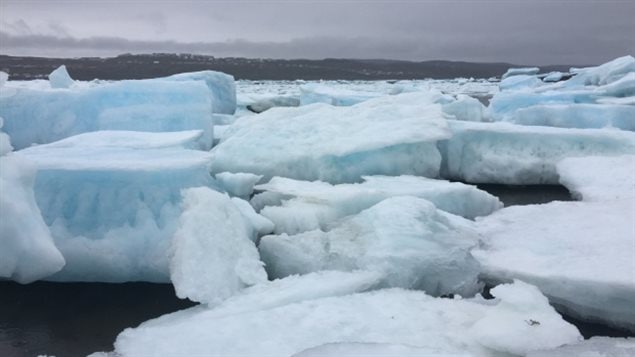
Science Minister Kirsty Duncan is going to the North to talk to scientists observing climate change there. A news release says she will witness the impacts of climate change during her visit from July 17 to 21 and “advance her support for northern research programs…that provide the evidence necessary to inform policy decisions about fragile northern environments and ecosystems.”… more
More visitors, more pressure on national parks
By
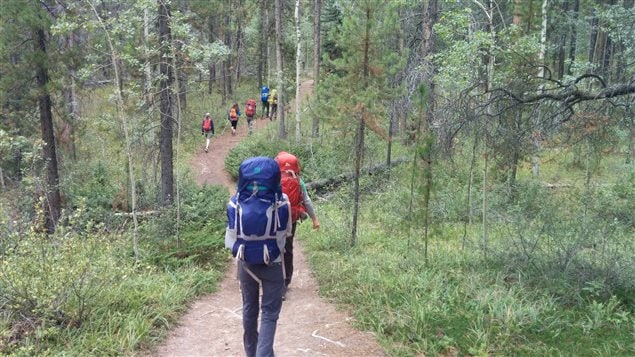
The government has increased staff at national parks to cope with an expected increase in the number of visitors this summer. This year is the 150th anniversary of the confederation of Canada and to celebrate the government has offered free admission to the parks to those who request it.… more
Group urges action to cut plastic bottle pollution
By
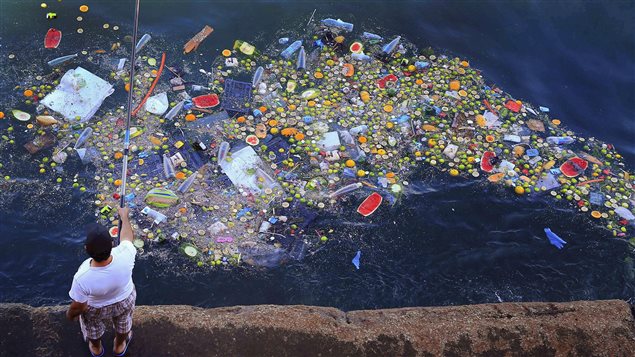
Coca-Cola plans to increase the amount of recycled plastic in its bottles sold in the U.K. Absent news of plans to do that in Canada, the group Environmental Defence is calling for better bottle return policies across the country… more
International maritime body adopts Canadian proposal on heavy fuel oil in Arctic waters
By

The United Nations’ specialized agency that regulates maritime shipping has adopted a Canadian proposal to begin the process of developing rules on mitigating the risks of use of heavy fuel oil (HFO) to power ships operating in Arctic waters… more
Environmental groups slam government plans to allow oil and gas drilling in proposed marine protected area
By
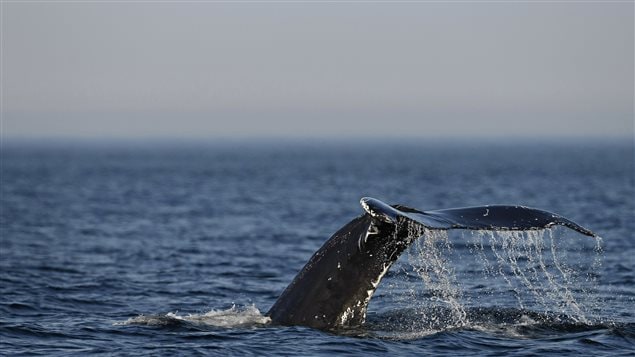
Environmental groups are blasting the Liberal government’s plan to allow oil and gas exploration in a proposed marine protected area off the southwest coast of Newfoundland and Labrador in the Atlantic Ocean… more
Environmental rights as a human right: new proposals for Canada’s environmental laws
By
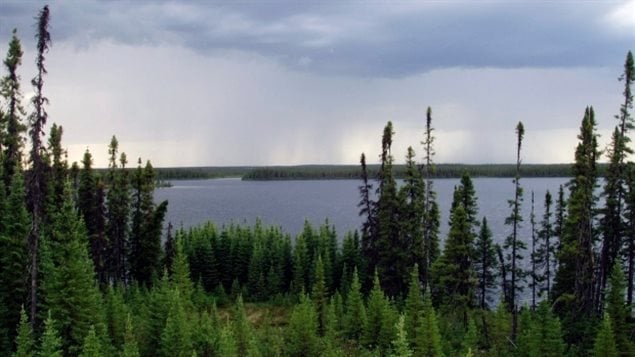
In a comprehensive evaluation, a government committee has made many recommendations to update Canada’s Environmental Protection Act (CEPA). Environmental groups are generally pleased with the recommendations and urge government to move quickly to adopt them.
… more
Canada’s Marine Protected Areas: more scientific input and protection needed
By
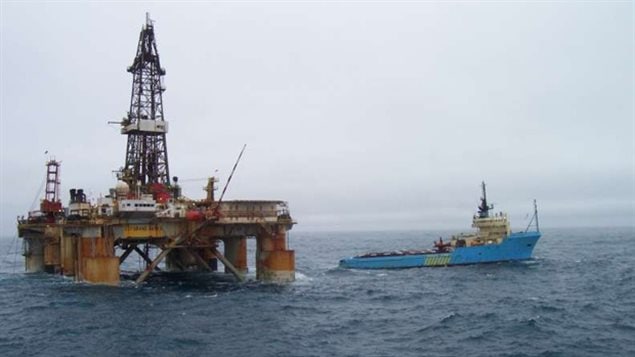
Recently 15 respected Canadian scientists sent a letter to Canadian politicians expressing concern about Canada’s current and future marine protected areas. All of the scientists are involved in various ways with marine research… more
Environmental Protection Act: new recommendations for GMO’s
By
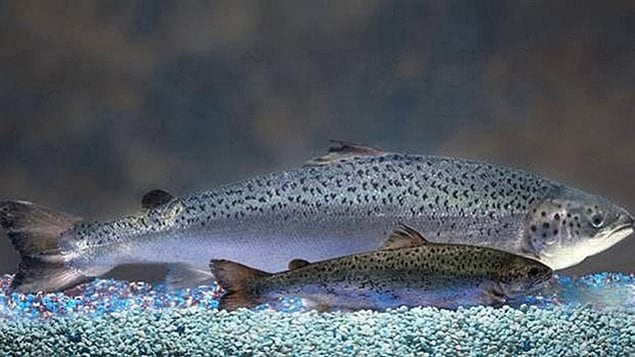
In a wide ranging review of Canada’s Environmental Protection Act (CEPA) released last week, many recommendations were made for changes to the Act which has remained basically unchanged since 1999.
Among them were recommendations regarding the introduction of genetically modified organisms, excluding plants… more
Report flags freight emissions as threat to Paris climate goals
By
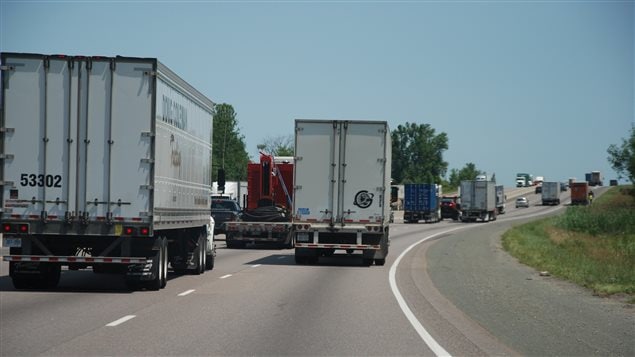
.. more
Canadian scientists discover how forests reduce ozone pollution
By
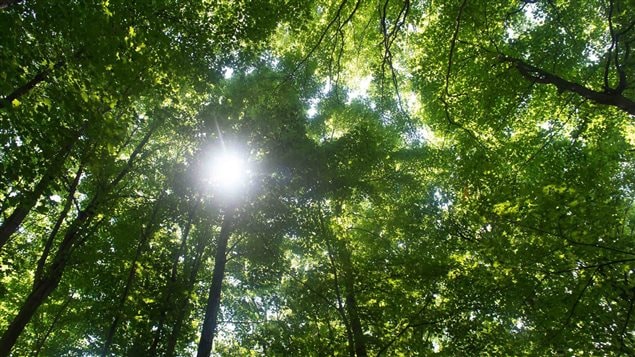
Canadian scientists have discovered how forests reduce the amount of surface ozone pollution by up to half, creating a new way for much more accurate air quality forecasts worldwide… more
Environmental group applauds ban on microbeads
By

The group Environmental Defence is lauding the Canadian government for banning microbeads in personal care products. These tiny plastic pieces pollute water and choke wildlife. They are used as abrasives in products like body washes and toothpaste, replacing substances like oatmeal and ground nutshells that were used in the past… more
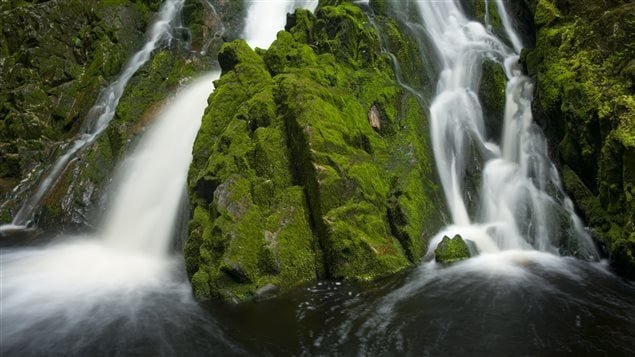






For reasons beyond our control, and for an undetermined period of time, our comment section is now closed. However, our social networks remain open to your contributions.